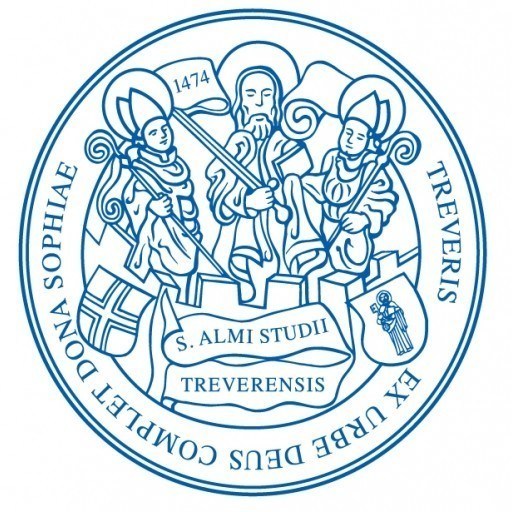Photos of university / #uni_trier
History of University of Trier:
The University of Trier, located in Trier, Germany, was officially founded in 1970 as part of a larger educational reform movement aimed at expanding higher education opportunities in Germany. The university was established to serve the southwestern region of Germany, focusing on fostering research and teaching in various disciplines. Its foundation was influenced by a desire to provide accessible, high-quality education and to promote regional development through academic excellence.
Initially, the university offered a limited number of programs, primarily in the humanities, social sciences, and cultural studies. Over the years, it expanded its academic offerings to include disciplines such as economics, law, psychology, and student support services. The university also prioritized interdisciplinary research and international cooperation to enhance its academic reputation and engagement with global issues.
Throughout its history, the University of Trier has evolved significantly, developing a reputation for innovative teaching methods and research projects. It has invested in modern campus facilities, digital infrastructure, and international partnerships, which have contributed to its growth and recognition within Germany and Europe. The university also emphasizes sustainability, social responsibility, and community engagement as core parts of its institutional identity.
Today, the University of Trier continues to grow as a dynamic institution committed to academic excellence, regional development, and international collaboration, maintaining its role as a vital center for education and research in the region.
Application requirements and admission process at the University of Trier involve several steps and specific criteria to ensure that prospective students meet the standards for enrollment. Firstly, applicants must hold a valid university entrance qualification equivalent to the German Abitur or a comparable international school-leaving certificate. International students are required to demonstrate proficiency in German or English, depending on the program language, through standardized tests such as TestDaF, DSH, TOEFL, or IELTS, with minimum score requirements specified by each program. Additionally, some programs may require entrance examinations or interviews to assess suitability and motivation.
Prospective students must submit a complete online application via the university's admission portal, attaching all necessary documents including transcripts, diplomas, language certificates, proof of identity, and passport-sized photographs. The application deadlines typically vary depending on whether applicants are from within the European Union or outside, with specific dates published annually on the university's official website. Non-EU students might also need to apply for a student visa after receiving their admission offer.
The university assesses applications based on academic qualifications, language skills, and, where applicable, entrance examination results. International applicants are advised to verify recognition and equivalence of their previous qualifications through the central office for international recognition or similar authorities. Once selected, admitted students receive an official acceptance letter and instructions for enrollment, which can include registering in person or online, paying semester fees, and registering for courses. The University of Trier also recommends early preparation of housing and health insurance arrangements.
Potential students are encouraged to consult the specific requirements for their chosen program, as some fields such as Medicine, Psychology, or International Business may have additional prerequisites or selection procedures. The university's admissions office provides guidance and assistance throughout the application process to facilitate compliance with all entrance criteria and deadlines.
The University of Trier is accredited by the German Science Council (Wissenschaftsrat) and is recognized as a higher education institution that meets the rigorous standards set forth for academic excellence and institutional quality. The accreditation process involves comprehensive evaluations of the university's academic programs, research activities, infrastructure, governance structures, and student support services. Additionally, individual faculties and study programs within the University of Trier are regularly accredited to ensure compliance with national and European quality assurance standards. The university maintains its accreditation status through continuous quality assurance mechanisms, including internal audits, peer reviews, and stakeholder feedback, which help to promote improvements and uphold academic integrity. The University of Trier is also a member of various national and international university networks, which further attest to its commitment to maintaining high standards of education and research. These accreditations and memberships facilitate collaboration with other institutions globally and enhance the university's reputation among academia, industry, and society. The university's commitment to quality is reflected in its strategic planning, resource management, and innovative approaches to teaching and research. The accreditation guarantees students and faculty that the university adheres to recognized academic standards, providing a solid foundation for academic success and research excellence. Furthermore, the University of Trier undergoes periodic reviews by accreditation agencies to ensure ongoing compliance with evolving standards and to adapt to changes in higher education policy and societal needs. Overall, accreditation is an essential aspect of the university's operational framework, ensuring that it continues to offer high-quality education, impactful research, and meaningful community engagement.
University of Trier offers a unique academic environment characterized by its innovative research, strong focus on interdisciplinary approaches, and personalized student support. The university excels in providing high-quality education with a student-centered philosophy, fostering close interactions between students and faculty. Its diverse range of programs covers humanities, social sciences, economics, and computer science, enabling students to pursue well-rounded and comprehensive studies. The university is situated in a vibrant city known for its rich cultural history and lively student community, which enhances the overall university experience. Additionally, the University of Trier is committed to internationalization, welcoming students and researchers from all over the world, and offering numerous exchange programs, joint degrees, and collaborations with global institutions. It emphasizes practical skills and employability, partnering with local businesses and organizations to provide internships and real-world projects. The university also invests in modern facilities and technology to support innovative teaching and research. Its commitment to sustainability and social responsibility is reflected throughout its campus activities and curriculum. Students choose the University of Trier because of its reputation for academic excellence, supportive learning environment, strong international network, and opportunities for personal and professional growth. The university’s emphasis on research-driven teaching and its engagement with societal challenges make it a compelling choice for students seeking a comprehensive and forward-looking higher education experience.
